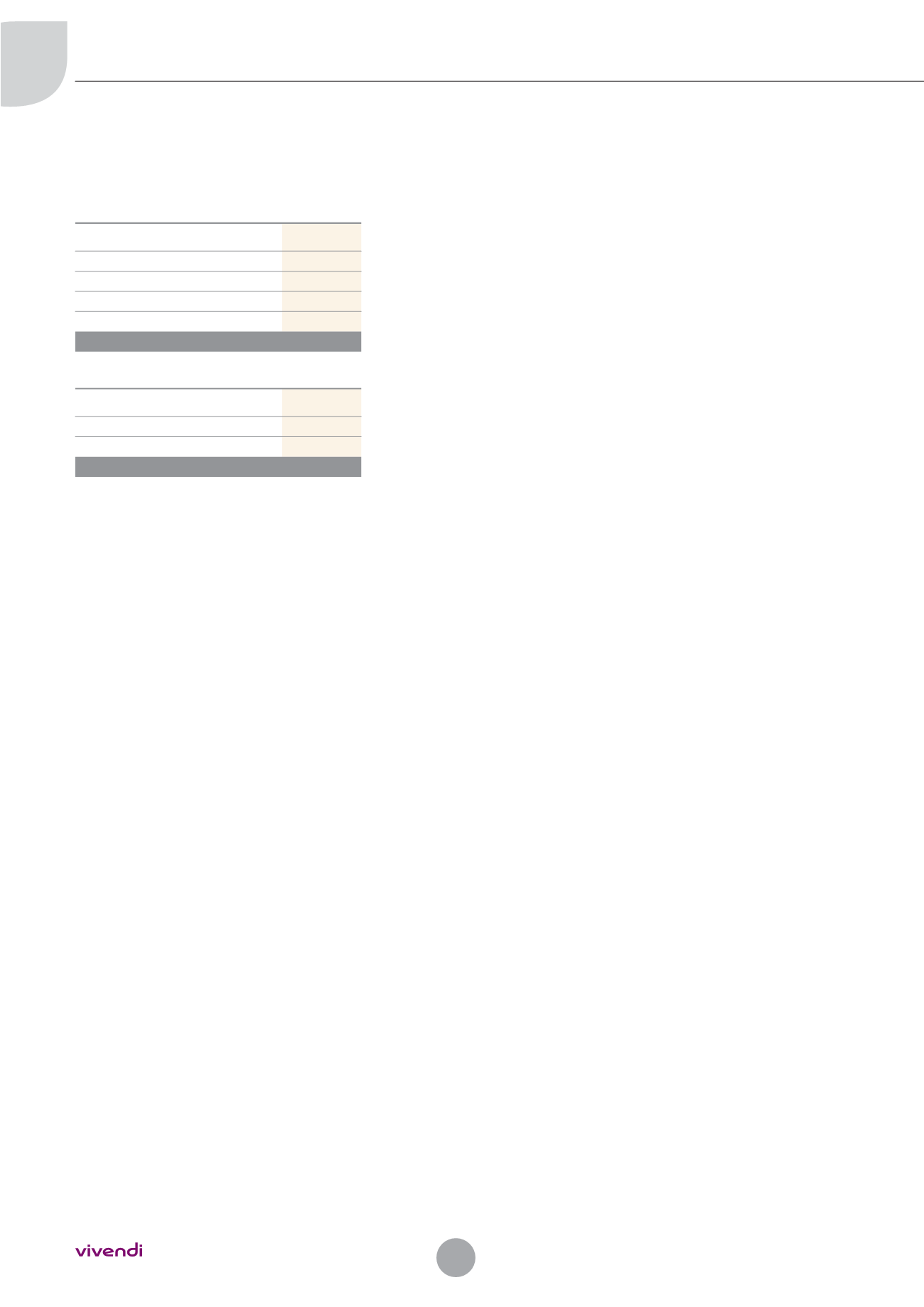

Environmental Indicators
Information Categories Deemed Irrelevant with Regard to the Group’s Businesses
In 2015, total CO
2
emissions represented 114,891 tCO
2
eq of which:
◆
Scope 1
Mobile sources
3,802
Fixed sources
3,649
of which refrigerants
1,972
of which domestic fuel
121
of which gas
1,556
Total
7,451
◆
Scope 2
Fixed sources
107,440
of which electricity
27,048
of which steam
80,392
Total
107,440
CO
2
emissions relating to consumption from fixed sources are 75%
attributable to steam consumption.
The facility comprising all Canal+ Group’s free channels renewed its
BREEAM (BRE Environmental Assessment Method) certification in 2015
and is continuing with its plan to control consumption. This facility is also
equipped with free cooling generators which use outdoor air to cool film
sets and equipment.
Efforts have also been made in relation to the air conditioning systems
used by Canal+ Group subsidiaries in Africa and Vietnam, thus assisting
in reducing CO
2
emissions. Canal+ Senegal reinforced the insulation of
offices and warehouses. Canal+ Congo installed an automatic cutoff
system for its air conditioning and electricity at night, during the
weekends and during holidays. K+ in Vietnam introduced a new air
conditioning system that uses a less polluting refrigerant. Efforts made
in relation to air conditioning have also been directed at improving the
regulation of temperature in offices and at maintenance to optimize
broadcasting equipment, which uses cooled air.
At some UMG facilities, such as those located in Germany, more than
74% of the electricity consumed comes from renewable sources. UMG
Sweden uses biofuel to heat its site. As part of this effort to offset
energy consumption, Universal Music France is diversifying its energy
supply sources with the purchase of EDF “Équilibre+” contracts. Lastly,
in Japan, UMG has also implemented measures aimed at reducing
electricity consumption and better regulation of air conditioning systems
during the summer period.
6.5. Information Categories Deemed Irrelevant with Regard to the Group’s
Businesses
Measures to Prevent Environmental Risks and Pollution
This information category was deemed irrelevant in relation to the group’s
activities, which do not present any risk in terms of pollution.
Financial Provisions and Guarantees for Environmental Risks
This information category was deemed irrelevant with regard to the
group’s activities: the major risks associated with the group’s activities
are not related to environmental issues.
Prevention, Reduction or Remedying of Emissions into the Air,
Water and Soil
This information category was deemed irrelevant with regard to the
group’s activities, which do not present any risk of air, water or soil
pollution (aside from CO
2
emissions, which are discussed in Section 6.4.).
Consideration shown for Noise Pollution
and any Other Form of Pollution Specific to an Activity
This information category was deemed irrelevant with regard to the
group’s activities, which do not present any risk of noise pollution or of
any other form of specific pollution.
Land Use
Information in that category was deemed irrelevant as the group’s
activities do not present any risk in terms of soil pollution.
Adaptation to Climate Change
Information in that category was deemed irrelevant with regard to the
group’s activities. The group’s activities are subject to few constraints
related to climate change.
Measures Taken to Preserve or Develop Biodiversity
Given the group’s operations, biodiversity is not considered a major issue
for which Vivendi must make specific investments.
EXTRA-FINANCIAL INDICATORS HANDBOOK
2015
64


















